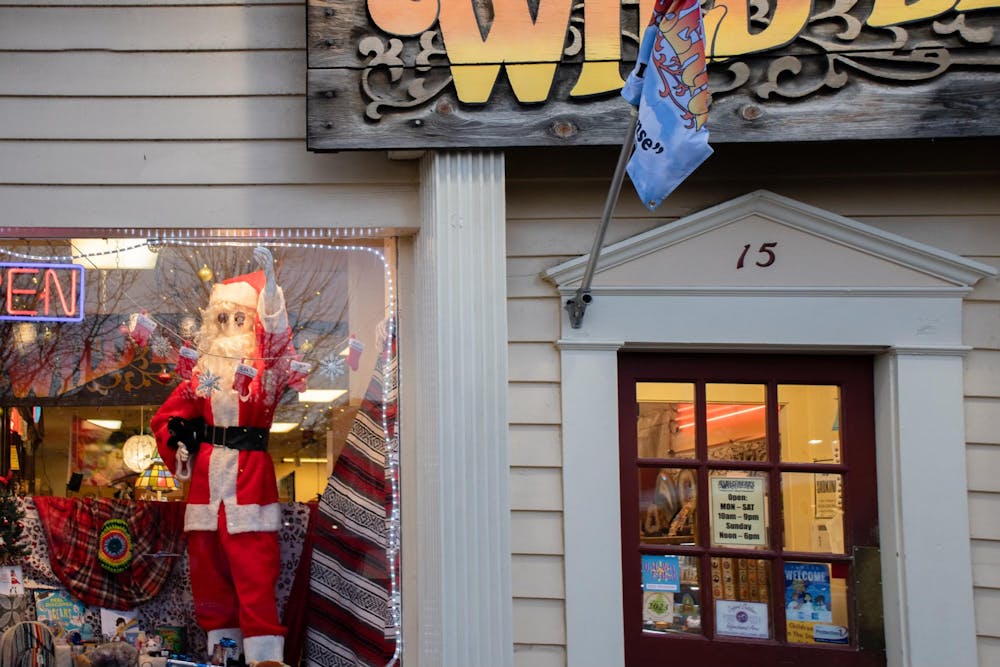The leaves are gone, the walks to classes are getting colder and finals have come and gone. The end of the semester is here for students at Miami University and across the country. But with the semester in hindsight and winter break ahead comes another important time in many students’ lives: the holiday season.
Many Miami students will be returning home to spend time with their families for the holidays, but while they are still here, the city of Oxford hopes they can begin their holiday shopping and celebrations locally. However, the holiday season brings with it an uptick in waste, and with Oxford’s Climate Action Plan, sustainability efforts are being highlighted for students and townspeople alike.
One resource Oxford is not short on is used clothing stores. Clothing items are a popular gift, and while fast fashion, and overconsumption trends have come under scrutiny within fashion; buying secondhand clothing is a great way to avoid these issues. From Uptown Threads located on Church Street, Snazzy Boutique near the fire station, the Goodwill across from Kroger or the new “Flow State Vintage” on High Street, there are plenty of ways to find sustainable clothing as gifts nearby.
Uptown Threads also has a sister store, Thread Up Oxford, which reduces textile waste by taking donations and repurposing them as cloth, yarn and fabrics. Carla Blackmar, the exhibition, graphics, and curatorial technician at the Hefner Museum, said she enjoys utilizing Thread Up and the other local used clothing stores to purchase her gifts.
“There’s just so many nice places if you're going to do resale,” Blackmar said. “... Buying secondhand is a great alternative to going and buying new materials.”
Blackmar has also noticed that food waste becomes more substantial during the holiday season, especially when she gathers with family. The U.S. EPA considers food waste a major factor in overall holiday waste, but luckily Oxford has a program to combat that waste.
In 2019, Oxford created a food scrap program for residents and students to drop off their food waste. Similar to the AI waste stations in Armstrong Student Center, the food in these bins are composted by an outside party and avoid ending up in the landfill, where they would produce methane as they break down, a greenhouse gas more harmful than carbon dioxide.
While second-hand clothing stores and composting programs are especially relevant during the holiday season, they are available year-round in Oxford. However, the city recognizes the need to promote holiday-specific sustainability ideas and has responded in a few ways.
For the past several years, the city has set up a station to collect old or broken holiday lights, allowing them to be recycled rather than thrown away. This year the program runs until Jan. 8, and has been promoted, along with other sustainability programs and tips, within a new education program. Reena Murphy, Oxford’s Sustainability Coordinator, explains why the city is widely pushing sustainability.
“This is part of our larger recycling and education, recycling and compost education campaign,” Murphy said. “[We wanted to do] sustainable holidays as a topic in this year-round education.”
The push to implement sustainable alternatives to daily life for Oxford residents and Miami students can be seen across Oxford this holiday season. The city of Oxford releases a monthly sustainability newsletter, which Blackmar writes. It highlights a multitude of general ways to shop sustainably, which is useful if students find themselves at home over break.
“The holidays are all about excess,” Blackmar said. “But we can, we can totally try to ‘right-size’ our holidays.”




